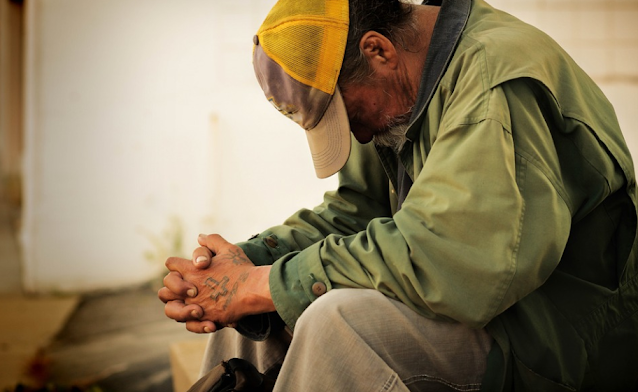A Muslim can only rely on Allah for his hope and help. This is how a Muslim should make Allah a dependent. And whoever hopes in Allah, surely promises that he will never be disappointed.
Allah swt promises to reward heaven for those who only make Allah the only port of hope and supplication.
Rasulullah is a person who works hard and never sits idly by. From a young age, he was known as a tenacious and honest merchant.
Unfortunately, today many people prefer to beg than to work. This begging is rampant in our country. Unknowingly they have denied the favors of Allah bestowed on them, both in the form of a strong body, mind and intelligence, as well as the ability to produce.
In fact, the Prophet was very firm in this matter.
According to al-Khauli in al-Adab an-Nabawi, if the beggar is actually able to earn a living but he prefers to be a beggar, he has disbelieved in Allah’s favor. It is called so because he does not want to be grateful for the blessings of the limbs that Allah has given him. If he was grateful, he should have used his limbs.
People who sell vegetables that are cheap in price, which they harvest from the fields, and then carry them, they are more noble than people who pass by on the streets, day and night, begging people, even though the majority of them are actually able to work to earn a living. well.
The Messenger of Allah invited his people to earn a lawful living in a good way, not begging. Why? Because begging is a lowly and despicable act. Work that is rough and lowly in the eyes of most people, for example looking for firewood in the forest and then selling it, is better according to Rasulullah SAW than begging.
Read: Islamic Marriage Law
FACTORS THAT ENCOURAGE A SOMEONE TO BEG AND BEWARE
There are many factors that prompt a person to seek help or donations. Some of these factors are permanent, and some are sudden or unexpected. Examples are as follows:
The factors of powerlessness, poverty, and poverty experienced by people who have difficulty providing for their daily family needs. Because they do not have a fixed salary, regular benefits or other sources of life. While they themselves do not have special skills or expertise that they can use to make money.
Just as they are orphans, people with disabilities, people who are chronically ill, poor widows, people who are old enough to be unable to work, and so on. The factor of economic hardship that is being faced by people who have suffered loss of property is quite large.
For example, entrepreneurs who went bankrupt (bankrupt) or traders who went bankrupt or farmers who failed to harvest completely. They are also people who need help because they are experiencing sudden economic difficulties so they cannot support their families. Especially if they are also in big debts, so that sometimes they have to go to court.
Disaster factors that befall a family or community such as fire, flood, earthquake, infectious disease, and others so that they are forced to beg. Factors that came later were unexpected. For example, people who suddenly have to bear debts to various parties without being able to pay them, take care of orphans, take care of the needs of nursing homes, and the like.
They are also people who need help, and usually do not have the money to pay their debts without a helping hand from other rich people, or without trying to find it themselves even by begging.
TYPES OF BEGGERS When we discuss the phenomenon of beggars from the point of view of wisdom, law, and justice, we must divide the beggars into two groups:
1. Group of beggars who really need help.
In real life, these beggars are really in a state of suffering because they have to face difficulties in finding food on a daily basis. Most of them are people who still have self-respect and want to maintain their honor.
They don’t want to ask others in an urgent way while begging. Or they feel ashamed to bear the title of beggars who are considered to have damaged the good name of religion and disturbed ethical values and violated the traditions of the surrounding community.
2. Fake beggar groups who are good at playing plays and tricks.
Apart from knowing the secrets and tricks of begging, they also have expertise and experience that can mislead (blur) public opinion, and choose strategic loopholes. In addition, they also have various dynamic begging patterns, such as how to attract sympathy and compassion from other people who are targeted.
For example, some of them are singing, bringing small children, pretending to be injured, carrying a donation folder that is not clear, complaining that their family is sick even though they are not, some are begging by singing or playing music which are clearly unlawful, and some are begging by wearing clothes. tidy, wear a suit and more, and dozens of other ways to deceive and deceive humans.
Read: Hajj in Islamic Law

